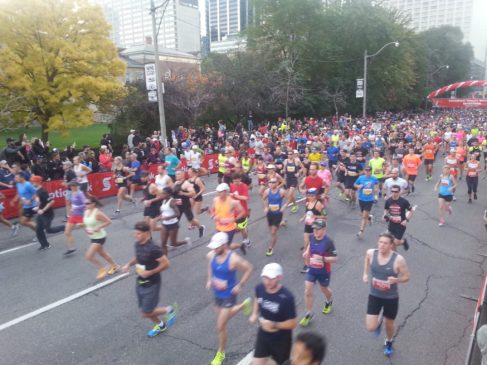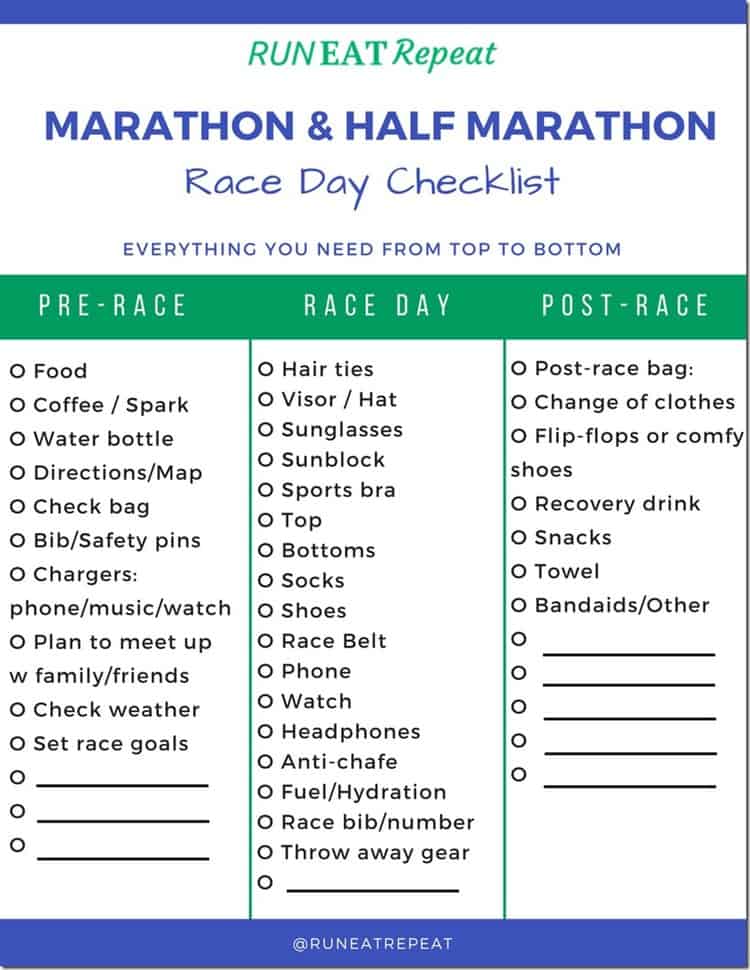Training Mistakes: What To Do For Race Day
Avoid common training mistakes to prepare effectively for race day and achieve your goals without setbacks. Proper planning, pacing, hydration, nutrition, rest, and mental preparation are vital for success.
On race day, focus on your efforts, maintain a positive mindset, and trust your training to perform at your best. Whether you are a novice or experienced runner, following these guidelines will help you avoid common pitfalls and optimize your performance on race day.
Remember, preparation is key to achieving your personal best and enjoying a successful race day experience.
:max_bytes(150000):strip_icc()/common-running-mistakes-to-avoid-2911703-FINAL-efd739f8b28c46bebcda5a57dfb77a7a.jpg)
Credit: www.verywellfit.com
Common Training Mistakes
Effective training is essential for a successful race day performance. A rigorous and consistent training plan can make all the difference. However, there are several common mistakes that runners often make. Here are some of the most prevalent pitfalls to be aware of, along with solutions for avoiding them.
Inconsistent Training Schedule
An inconsistent training schedule can hinder your progress and lead to suboptimal race day performance. Without a consistent routine, it becomes challenging for your body to adapt and improve. It’s crucial to establish a feasible and sustainable training schedule to ensure adequate progression towards your race day goals. Be sure to set realistic and achievable workout days and stick to them diligently.
Ignoring Cross-training
Neglecting cross-training is a common oversight among runners. Focusing solely on running can result in muscle imbalances and increased risk of injury. Incorporating activities such as cycling, swimming, or strength training helps to strengthen different muscle groups, enhance overall fitness, and prevent overuse injuries. It’s essential to diversify your workouts to optimize your performance and overall well-being.
Neglecting Rest And Recovery
Failure to prioritize rest and recovery can compromise your training efforts. Overtraining and inadequate rest can lead to fatigue, decreased performance, and heightened injury risk. It’s crucial to incorporate rest days into your training plan to allow for muscle repair and rejuvenation. Additionally, focusing on proper nutrition, hydration, and sleep is vital for effective recovery and optimal performance on race day.
Importance Of Proper Nutrition
Proper nutrition plays a vital role in race day success. Fueling properly enables athletes to perform at their best, maintain stamina, and facilitate optimal recovery. It is crucial to pay close attention to pre-race fueling, hydration during the race, and recovery nutrition to maximize performance and promote overall well-being.
Fueling Before The Race
Adequate consumption of balanced carbohydrates, proteins, and healthy fats is important for sustained energy levels. Avoid heavy meals right before the race to prevent digestive issues.
Hydration During The Race
Staying hydrated is essential to maintain optimal performance. Sip water regularly during the race to prevent dehydration and muscle cramps.
Recovery Nutrition
After the race, focus on consuming protein-rich foods to aid muscle recovery and carbohydrates to replenish glycogen stores. Include electrolytes in your post-race meals to restore balance.
Race Day Preparation
Race Day Preparation is crucial for optimal performance. Setting realistic goals and developing a race day strategy are key components.
Setting Realistic Goals
Define achievable objectives based on your training progress and fitness level.
Developing A Race Day Strategy
Create a plan that includes pacing, hydration, and fueling strategies.

Credit: downhilltodowntown.com
Mental Preparation For Race Day
Preparing mentally for race day is just as crucial as physical training. The right mindset can make all the difference in your performance. Here are some key aspects of mental preparation that can help you excel on race day.
Visualizing Success
Visualizing your success on race day can help build confidence and reduce anxiety. Take some time each day to mentally rehearse crossing the finish line, feeling strong and accomplished. Creating a mental image of success can help quiet negative thoughts and keep you focused on your goal.
Managing Pre-race Anxiety
Pre-race anxiety is common, but it’s essential to manage it effectively. Deep breathing exercises, meditation, or listening to calming music can help calm your nerves. Focus on the aspects of the race that you can control, such as your pacing and form, rather than worrying about external factors.
Avoiding Common Race Day Mistakes
When it comes to race day, avoiding common mistakes can make all the difference in achieving your goals. Whether you are a seasoned runner or a beginner, steering clear of these pitfalls will ensure a successful race day experience. In this article, we will discuss three important factors to consider when preparing for your big race: starting too fast, improper pacing, and ignoring course terrain.
Starting Too Fast
Starting too fast is a common mistake that can lead to burnout and fatigue later in the race. Many runners get caught up in the excitement and adrenaline of the start line, causing them to sprint out of the gate. It is crucial to resist the urge to sprint and instead start at a moderate pace that you can comfortably maintain throughout the race.
This mistake often occurs due to a lack of race day strategy. Before the race, create a pacing plan based on your training and fitness level. This plan will help you maintain a consistent pace and ensure you have enough energy to finish strong. Remember, it’s not about how quickly you start; it’s about how well you finish.
Improper Pacing
Improper pacing is another common race day mistake that can hinder your performance. Running too fast in the early stages of the race can lead to early fatigue, making it difficult to maintain a steady pace. Conversely, starting too slow can result in wasted energy and a missed opportunity to set a new personal record.
Avoiding improper pacing requires a keen understanding of your body and its capabilities. It is essential to align your pace with your training and listen to your body during the race. Remember to start conservatively and gradually increase your speed if you feel comfortable, ensuring that you have enough energy for a strong finish.
Ignoring Course Terrain
One mistake many runners overlook is ignoring the terrain of the race course. Each race has its unique challenges, such as hills, turns, or uneven surfaces. Neglecting to familiarize yourself with the course terrain can lead to unexpected difficulties and impact your race performance.
Prior to race day, take the time to study the course map. Identify any challenging sections and strategize how you will approach them. If possible, practice running on similar terrain during your training to prepare your body and mind for the challenges ahead.
| Course Terrain | Strategy |
|---|---|
| Hills | Incorporate hill training into your preparations. Use shorter strides while climbing and maintain a steady breathing pattern. |
| Turns | Practice running sharp turns to improve your agility and maintain momentum. |
| Uneven Surfaces | Strengthen your stabilizing muscles and practice running on different surfaces to adapt to uneven terrain. |
Avoiding common race day mistakes will enhance your overall race experience and increase your chances of achieving your desired results. By starting at a manageable pace, maintaining proper pacing, and considering the course terrain, you can optimize your performance and cross that finish line with pride.

Credit: ar.pinterest.com
Frequently Asked Questions Of Training Mistakes What To Do For Race Day
How Can I Avoid Training Mistakes For Race Day?
To avoid training mistakes for race day, it’s important to have a well-structured training plan, listen to your body, and incorporate rest days into your schedule.
What Are Some Common Training Mistakes To Avoid?
Common training mistakes to avoid include increasing mileage too quickly, neglecting strength training, and not fueling properly before and after workouts.
How Can I Recover From A Training Mistake Before Race Day?
To recover from a training mistake before race day, make sure to assess the issue, adjust your training plan if necessary, prioritize rest and recovery, and focus on mental preparation.
Conclusion
In closing, avoiding common training mistakes ensures a successful race day. With proper preparation and understanding, you can enhance your performance and achieve your goals. By addressing these issues, you’ll be better equipped to navigate the challenges of race day and maximize your potential.
Keep these tips in mind as you train and approach your next race.





